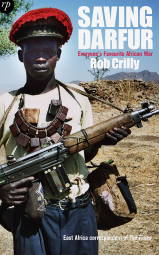
So the second draft is done. There is more editing ahead, and the afterword will probably be redone to take account of ongoing developments in Darfur. But the back is broken, the end is in sight etc.
My publisher has read the manuscript. But she knows what to expect. There are typos, occasional bouts of muddled thinking, things to be fixed. She has seen it all before and can see the finished book lurking beneath the odd screw-up.
Now though I have to widen the circle. And it's a nerve-wracking business. A couple of trusted friends have been sent the book for their general thoughts. And this week it has been going to the people whose comments may or may not appear on the cover, exhorting you to pick up this book - from all the other millions available - invest a few quid and actually read the thing.
Some are experts in Sudan. Some are experts on Africa. Some have had books published. Some know their name adds hundreds, if not thousands (I can dream), of sales. They aren't going to endorse any old rubbish. Their reputations are at stake. Some are friends. Some I have interviewed at different times. Some are friends of friends. All I respect.
What happens if they don't like it. Will I be getting emails that begin: "Thanks very much for a chance to read your, erm, interesting take on Sudan. On reflection, I feel that it isn't appropriate to be associated with this sort of..."
Of course I'm being stupid. Of course the book is almost as good and as readable as I could have made it. I've spent five years of my life working on Sudan and although I know I'm not an academic or an expert, I do reckon I have a thing or two to say. The one endorsement that I've had so far is in fact one of the most important, from one of the leading Darfur watchers. He likes it. So far so good.
Suddenly though, after years of being the critic, the unelected, unaccountable journalist-pundit offering opinions in the papers, on the radio or on my blog, the roles have been reversed. And it is an uncomfortable place to be.

So when is the book likely to hit the shelves so I can invest a few quid in it?